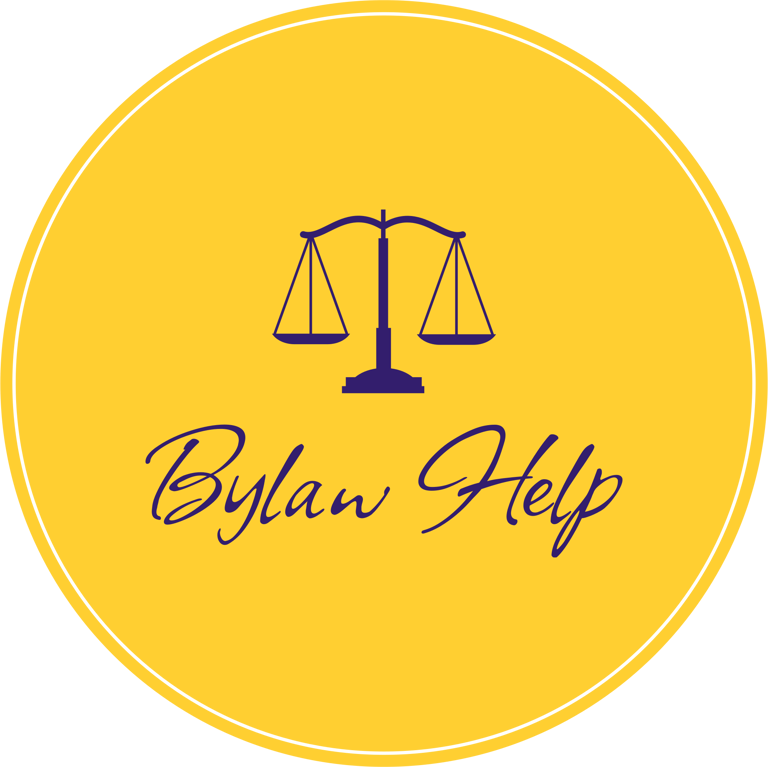The Case of Disinformation and the Deleted Word
This is the interesting case of Disinformation and the Deleted Word, or to use its correct legal name, the case of the Canadian Constitution Foundation v. Canada (Attorney General). It is the story of how, when the government decided to rewrite the Canada Elections Act, they opened a controversy by deleting one word. This controversy touched on such important issues as disinformation, election integrity and freedom of speech and it concerned people so much that they ended up mounting a constitutional challenge of the newly rewritten law, asking the courts to strike down the new Act as unconstitutional.


This is the interesting case of Disinformation and the Deleted Word, or to use its correct legal name, the case of the Canadian Constitution Foundation v. Canada (Attorney General).
It is the story of how, when the government decided to rewrite the Canada Elections Act, they opened a controversy by deleting one word. This controversy touched on such important issues as disinformation, election integrity and freedom of speech and it concerned people so much that they ended up mounting a constitutional challenge of the newly rewritten law, asking the courts to strike down the new Act as unconstitutional.
The case was decided by the Ontario Superior Court of Justice in 2021, but the story begins three years earlier.
In 2018, the federal government of Canada decided to update its election laws. This was partly in response to concerns about election interference that had been raised in recent years. There had been stories in the media about foreign agents attempting to influence the course of Canadian federal elections and there had been calls made for the authorities to respond. There was concern about persons influencing elections by spreading misinformation and disinformation.
There was also a desire to update some other elements of election law, to change spending limits and the like, and to reverse some election rules that a previous government had brought in which were criticized as being unfair. However, that’s a topic we won’t get into for now, as our story is focused on misinformation and disinformation.
So, in response to all the concerns mentioned, the federal government introduced Bill C-76 into the Parliament of Canada and it was passed and enacted into law in December 2018. One of the changes this bill made was to amend the wording of Section 91 of the Canada Elections Act. This was the section of Canada’s federal election law which made it an offence to spread false news about political candidates.
It wasn’t a new idea to prohibit false information aimed at influencing elections. In fact, there had been a section in the federal election law which banned people from doing so since 1908. This amendment sought to make the provision more effective by specifically naming the types of false information prohibited.
The previous version of Section 91 had merely stated that it was unlawful to spread false information about a political candidate’s “character or conduct.” However, the new amended version listed out various topics which it would be unlawful to spread false information about, such as false statements claiming a person had been charged with, or was under an investigation for, an offence and false claims about a person’s place of birth, citizenship, etc. Additionally, the new law banned not only false statements about a candidate in an election but also about other persons, such as the leaders of parties and public figures associated with political parties.
There was another difference between the pre-2018 law and the new amended version too. In the previous version, the law had been worded so it was an offence to spread false information “knowingly.” However, in the new version this word was deleted.
When the draft of the law was being discussed in Parliament, politicians had inquired about this change but had been told it was only a minor adjustment, or a housekeeping matter. A lawyer and policy advisor representing the federal government at the parliamentary hearings suggested that it was still implied in the law that a person had to knowingly spread false information to be guilty, even if the word had been deleted, and so persons who unknowingly spread incorrect information would not be liable.
Despite these statements from the federal authorities that persons who unwittingly communicated misinformation would not be targeted for enforcement, some persons were not reassured. Criticisms were raised that the law would make many people hesitate to discuss and debate the qualities of political figures publicly for fear of accidentally running afoul of the law. Indeed, a representative of one Canada’s prominent political advocacy groups, the Canadian Taxpayers Federation, stated they had curtailed their communications campaign in the 2019 federal election for fears of violating the new law.
In light of these criticisms of the law, it was probably predestined that someone would challenge it in court and the Canadian Constitution Foundation did just that in September 2019. A registered charity dedicated to advocating for rights protected in the Canadian Constitution, the group launched a legal action seeking to have Section 91 of the Canada Elections Act struck down as unconstitutional. They were supported in this effort by PEN Canada, another charity which advocated on behalf of freedom of expression for writers.
The case ended up being heard before Justice Davis of the Ontario Superior Court of Justice. As the hearing unfolded, the Canadian Constitution Foundation argued that Section 91 violated the Canadian Constitution and should be struck down on those grounds. To be precise, they argued it violated Section 2 of the Canadian Charter of Rights and Freedoms, which is a part of the Constitution, and which guarantees persons several freedoms, including freedom of expression.
The legal team representing the Attorney General of Canada, which opposed the application by the Canadian Constitution Foundation, admitted that the law restricted freedom of expression somewhat, but invoked Section 1 of the Charter which allows for limits to be placed on rights as long as the limits are reasonable and demonstrably justifiable in a free and democratic society. The Attorney General’s position was that the law was seeking to achieve an important goal, the prevention of disinformation in elections, and it had been crafted in such a way that it was a reasonable limit.
Arguments and counterarguments were then presented on the question of to what degree the law impaired freedom of expression, and whether the impairment was small enough to constitute a reasonable limit. This led to scrutiny of the exact wording of the section and the Canadian Constitution Foundation made the point that, since the word “knowingly” had been removed in the new version of the law, it had far too large of an impact on the freedoms of citizens to express themselves. They argued that, due to the word being deleted, it was now possible for persons to be convicted of a crime for accidentally stating falsehoods that they believed to be true, and this was not a reasonable limit.
The Attorney General’s position was the same as the federal government had presented before when the law was being amended. That is to say, even thought he word “knowingly” had been taken out, it made no difference, because it was still implied that a person could only be convicted if they knowingly made a false statement. They presented evidence in support of this position, although some of the evidence was not all that helpful as it contained inconsistencies. For example, an affidavit from enforcement officials in Elections Canada stated that, for a person to be convicted, the individual would have to knowingly make a false statement, but then later the affidavit stated that reckless disregard for the truth might also qualify. This was a problem because recklessness and knowledge are not equivalent and so it only further muddied the waters on what standard the government intended to use for enforcement.
In the end, Justice Davis ruled against the federal government, giving her judgment on February 19, 2021. She found that, despite the claims of the government to the contrary, removing the word “knowingly” had changed the law and that it had lowered the standard for convicting a person. Under this new law, a person could be convicted for unknowingly spreading falsehoods and this was too great of an impairment of a person’s freedom of expression, and it could not be justified as a reasonable limit under the Charter of Rights and Freedoms. As a result, she issued a declaration that Section 91 was unconstitutional and that it was of no force or effect.
Following this court decision, the federal government took action fairly quickly to respond to the law being struck down. By April 2021, they had introduced a bill into Parliament to re-insert the word “knowingly” back into the relevant sections of the Canada Elections Act and this bill was passed into law shortly thereafter.
SOURCES:
Appearance on Part 4, Division 37 of Bill C-30, An Act to implement certain provisions of the budget tabled in Parliament on April 19, 2021 and other measures, Standing Senate Committee on Legal and Constitutional Affairs, 43rd Parliament. (2021) (testimony of Minister of Intergovernmental Affairs Dominic A. LeBlanc). https://www.canada.ca/en/intergovernmental-affairs/corporate/transparency/briefing-documents/parliamentary-committees/standing-senate-committee-legal-constitutional-affairs/study-bill-c-30-may-12-2021.html
Bill C-30, An Act to implement certain provisions of the budget tabled in Parliament on April 19, 2021 and other measures, 2nd Session, 43rd Parliament, 2021. https://www.parl.ca/DocumentViewer/en/43-2/bill/C-30/royal-assent
Bryden, J. (2018, December 10). Election reform bill passed in time for implementation in 2019 federal vote. CTV News. https://www.ctvnews.ca/politics/election-reform-bill-passed-in-time-for-implementation-in-2019-federal-vote-1.4212822?cache=
Canada Elections Act, SC 2000, c. 9. https://canlii.ca/t/562tc
Canadian Constitution Foundation. (n.d.). About Us – Canadian Constitution Foundation. Canadian Constitution Foundation. Retrieved February 24, 2024 from https://theccf.ca/about-us/
Canadian Constitution Foundation v. Canada (Attorney General), 2021 ONSC 1224 (CanLII). https://canlii.ca/t/jdffc
Democratic Institutions. (2018, December 14). Government of Canada passes Elections Modernization Act [Press release]. https://www.canada.ca/en/democratic-institutions/news/2018/12/government-of-canada-passes-elections-modernization-act.html
Dyer, E. (2019, November 3). Watch what you tweet: New election law 'chills speech,' say critics. CBC News. https://www.cbc.ca/news/politics/elections-canada-section-91-2019-election-1.5345250
Elections Modernization Act, S.C. 2018, c. 31. https://laws-lois.justice.gc.ca/eng/annualstatutes/2018_31/FullText.html
Gaumond, E. (2021, March 16). Why a Canadian Law Prohibiting False Statements in the Run-Up to an Election Was Found Unconstitutional. Lawfare. https://www.lawfaremedia.org/article/why-canadian-law-prohibiting-false-statements-run-election-was-found-unconstitutional
PEN Canada. (n.d.). About – PEN Canada. PEN Canada. Retrieved February 24, 2024 from https://pencanada.ca/about/
The Constitution Act, 1982, Schedule B to the Canada Act 1982 (UK), 1982, c 11. https://canlii.ca/t/ldsx
Thompson, E. (2021, March 14). Law prohibiting election misinformation struck down. CBC News. https://www.cbc.ca/news/politics/elections-misinformation-court-free-speech-1.5948463

VLOG VERSION
